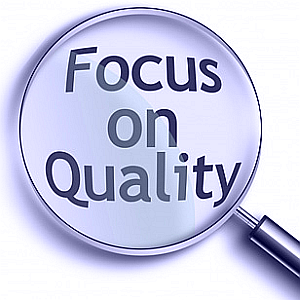Partnering with a Project Management Consultancy is Worth a Try
Professional project management consulting is a must-have service for many businesses today. I know it from my own experience. Last year, our company suddenly found that their ongoing projects brought no more expected return. In truth, our projects were not cost-effective – too many resources invested but no desired results received. We wasted our time trying to understand what’s wrong. Then we formed a small research group inside the company and delegated them the analysis of current situation. No luck, weak results were achieved. What we didn’t but should do is to take a deep breath and view our management approach from another, outside perspective. A professional project management consultancy helped us.
There is one rule to remember and follow: organizational project management shall grow in scale and scope as much as a business advances to the next level of development. In practice, however, this rule is rarely followed. While my and many other growing companies have to deal with more complicated projects from day to day, their project management approaches remain the same, neither adjusted nor advanced to business strategy. Only few businesses realize this gap and begin to work on improvements – then they become true leaders who drive business change.
Best Practices and Ad hoc Approach
Why this happens? The answer is, most of us believe that industry-recognized approaches and best practices work fine anytime, anywhere. Certainly, by nature project management best practices are generally accepted, time tested and battle proven. Many businesses have tried them in the past and have succeeded. So why wouldn’t they work now or tomorrow? Because they’re not concrete.
Best practices are one of the key reasons why companies fail with managing their projects. They are basic considerations and generally accepted guidelines. They always remain generalized and not specific. Lack of specificity along with one conventional approach to managing any kind of project makes a best practice inapplicable to situations which require special considerations and ad hoc methods. An organization that follows best practices but don’t accommodate them to business strategy is doomed to fail, sooner or later.
The Benefits of Hiring a Project Management Consultant
Taking a sensible view of how things are happening can make even a super specific project successful. By soberly assessing and analyzing your company’s current approach against generally accepted guidelines and industry-recognized methodologies you can understand whether there’s a gap between your project managing practice and strategic business priorities. You can make this analysis personally or by involving internal experts. As to our organization, we tried both options.
However, a much better way is to partner with a professional consulting firm that will help you reveal inefficiencies and focus on improvement opportunities. Industry-leading project management consultancy & services can help your business function better. Since such professionals deal with multiple organizations both locally and worldwide, they can provide options your company has never known about and help decide on the most promising opportunity. So the key benefit is, you are enabled to find and exploit the best opportunity available for your business.
Here are some other benefits your business gains from working with a professional consulting firm:
- Make a complete and comprehensive analysis of your business and project management framework
- Identify and develop a unique approach to manage changes in a way that leads to success
- Get the support and leadership that enable to accelerate your current and future implementations, in line with your business strategy
- Provide training and development opportunity to your personnel
We partnered with one trusted consultancy, and we know now that these benefits really work.
How to Deal with a Consulting Firm
There is a great guide published at PMI.org that explains how to find and select a professional consulting firm that can solve the specific project problems and meet the unique business needs of an organization. I followed that guide. And I suggest you read and use it when you look for a better consulting option.
Simply put, there are three basic steps to take:
- Define the goals and expectations
- Select the best consultancy to partner with
- Negotiate the way of the partnership
I called these steps the sequence of “What-Why-Who-How“. First, you need to define the goals (the “what“) of your projects and then understand what return (the “why“) you will get upon successful project completion. Next step, you look for a true project management consultancy (the “who“) that could help accomplish your goals and get the expected ROI. This consultancy should analyze your business and provide an ad hoc and customized solution that would really work. And finally, you negotiate the terms and contract (the “how“) with your consultant and agree on the scope, schedule, payment, roles, responsibilities, and other critical details of your partnership.














